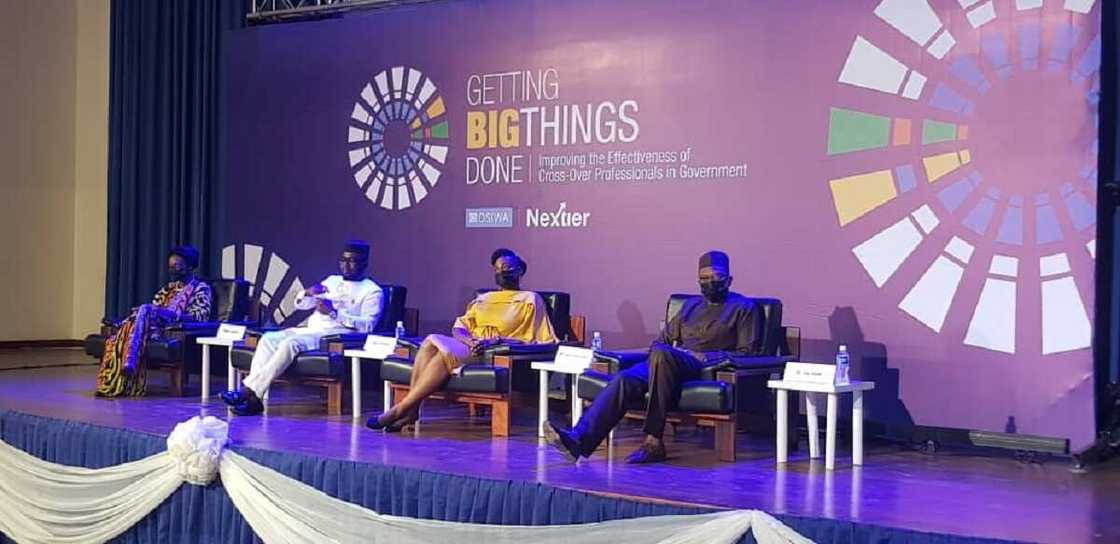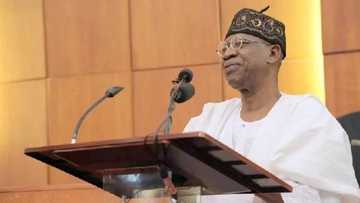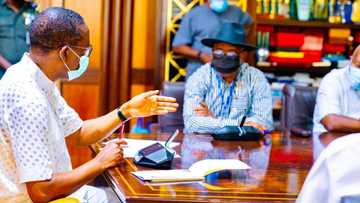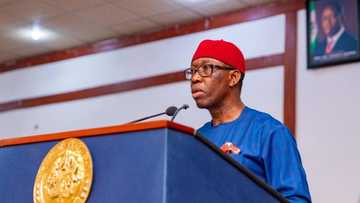Lowering Standards Has Destroyed Nigeria's Public Sector, says Chidoka
- To address challenges faced by Nigeria's public sector, experts have called for improved recruitment and promotion processes
- A former minister of aviation in Nigeria, Osita Chidoka said the process of recruitment and promotion in the public sector should be merit-based
- For a former director-general of BPSR, rules, and principles guiding the public sector makes it a profession on its own
PAY ATTENTION: Join Legit.ng Telegram channel! Never miss important updates!
FCT, Abuja - A former corps marshal of the Federal Road Safety Corps, Osita Chidoka, on Wednesday, June 23, said that Nigeria has continued to lower the standards of recruitment and promotion process in the public service.
Speaking at the Getting Big Things Done: Improving the Effectiveness of Cross-Over Professionals in Government, an event organised by the Open Society Initiative for West Africa (OSIWA) in partnership with Nextier, Chidoka said quota system does not mean lowering standards.

Source: Facebook
The event took place at the Musa Yar'Adua Centre Abuja and was attended by Legit.ng reporter.
Recruitment and Promotion Process in the Public Service
Chidoka who served as a minister of aviation in Nigeria said the recruitment and promotion of public servants in the public sector should be merit-based.
He said:
"We have consistently lowered the standards of people we bring into the public sector. Quota system doesn't mean lowering the standards below the minimum and lowering the standards is what has destroyed the system."
Also listing lack of equipment, poor human capacity, neglect for public servants and structural problems as some of the challenges destroying the Nigerian public sector, the former FRSC boss said the collapse of the system reflects a failed state.
Chidoka said:
"The people in the public sector are those who know someone that knows someone who is a public figure, that is why we have the police officers who have failed in policing; the soldier who has failed in securing the nation and the public servant who has failed in delivering public goods."
He called for replication of knowledge from consultants brought in to serve in the public sector to public servants.
Public Service, A Profession on Its Own
A panellist at the event, Joe Abah, said the public service should be regarded as a profession on its own.
Abah, a former director-general of the Bureau of Public Service Reforms (BPSR) said the public service has its own rules, principles, code of conduct.
According to Abah, these rules and principles must be studied like it is done in every other profession.
Abah said:
"And if you don't learn these rules and code of conduct, you end up creating more problems that you intend to solve."
"It is the abuse of federal character principles that is a problem. We need to prioritise the competence of the public sector or its officials and remunerate it accordingly.
''How do we convince a graduate of say, Babcock University to leave Chevron and come work in the public service only to earn, say, N300,000 throughout his 25 years of service?"
Addressing Challenges Faced by Nigeria's Public Sector
For the Program Coordinator for OSIWA, Catherine Angai, the bureaucracy in Nigeria's public system can be referred to as wicked problems.
Angai said a non-functional system is clear evidence of a failed system which can be seen in the poor delivery of public goods which is the fundamental obligation of the government.
She said:
"OSIWA’s support for this project creates an opportunity to confront Nigeria’s bureaucratic gaps by engaging these cross over professionals to understand the weaknesses in the system which have failed to allow the implementation of progressive policies, policies that promise to strengthen Nigeria’s democratic process and delivery of good governance."
She also said OSIWA that believes that work must be done on both ends to ensure swift and timely delivery of public goods.
She said:
"So we continue to think of different pathways, partnerships and models that ensure that democracy delivers on development and that governance works for the good of the people."
In his address, the founding partner of Nextier, Patrick Okigbo III, said the classical libertarian theory posits that the government should create an enabling environment while the private sector drives economic growth and development.
He however said that the Nigerian government fishes in non-public sector water for talents that would drive food results.
He acknowledged the fact that many Nigerians who “cross over” from civil society and private sector organizations to work in government have challenges adjusting to public service realities and demands.
Okigbo said:
"Although hitherto successful in their former roles, they contend with the different rules, incentives, and motivations governing the service."
To address some of the challenges faced in the public sector, Okigbo said it is important for Nigeria to maximize her inherent potential as the public service has a pivotal role to play.
PAY ATTENTION: Install our latest app for Android, read best news on Nigeria’s #1 news app
In a Facebook post, Nextier said the discourse is based on a recent study by the organisation that presents insights into challenges faced by professionals who transit from non-public sectors to government entities.
Meanwhile, Legit.ng previously reported that the Federal Government had threatened to suspend the salaries of some civil servants in the country.
The threat by FG followed reports of insufficient records on the Integrated Personnel and Payroll Information System (IPPIS).
In a circular signed by the director, IPPIS-Service Wide Department, A. I. Attah for the head of the service of the federation, Folasade Yemi-Esan, 720 civil servants might be affected.
In other news, the ministry of interior on November 30, 2020, announced the opening of the online portal for recruitment into the Nigerian Immigration Service.
The ministry said the Computer Based Aptitude Test will always take place across the 36 states of Nigeria and the Federal Capital Territory.
The exercise was expected to be conducted for candidates of the NIS and the Nigerian Security and Civil Defence Corps.
Source: Legit.ng







